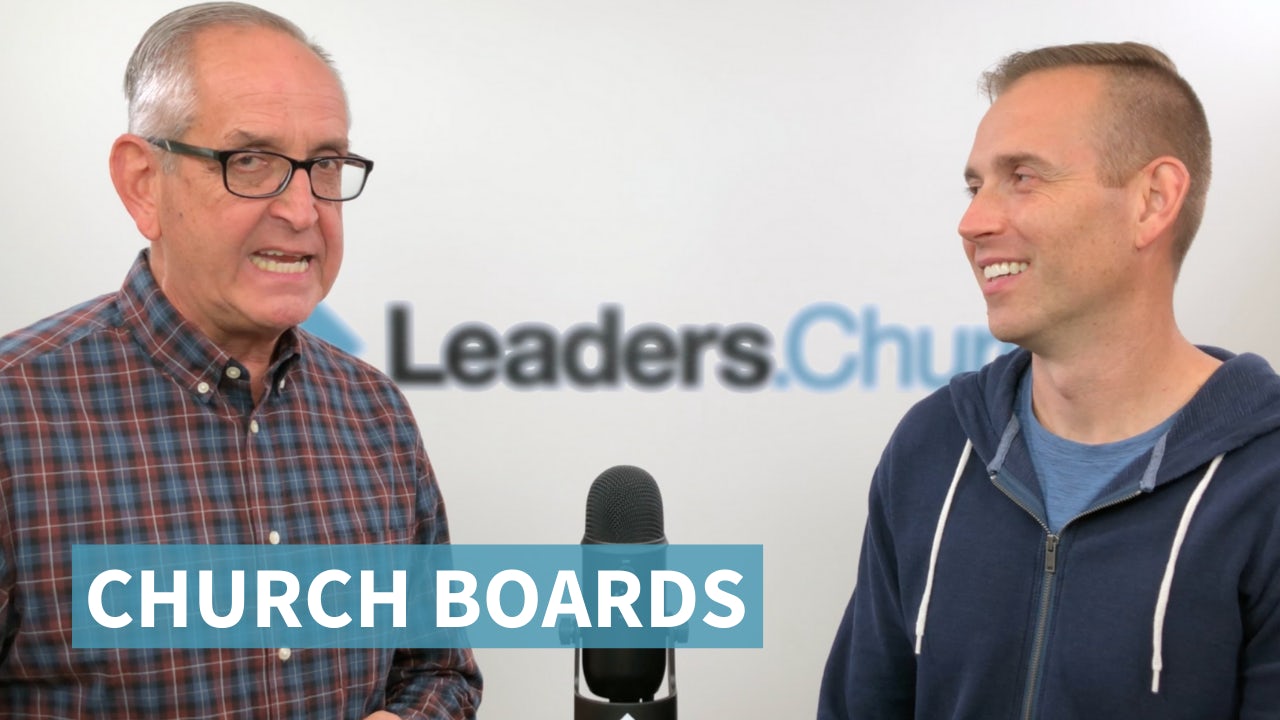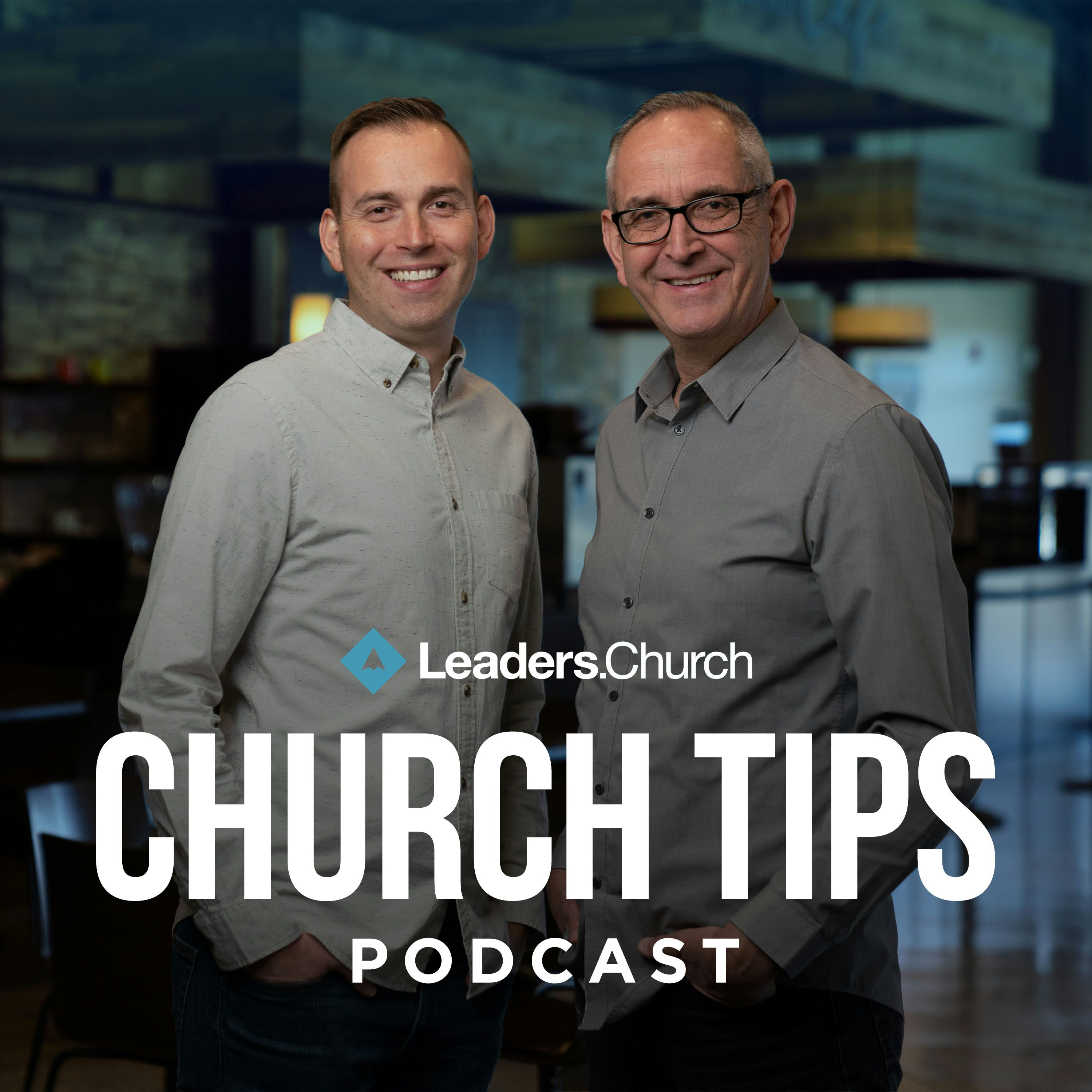084 – Church Boards
What’s in this Episode?
It’s a great idea and it’s really going to help move the church forward like never before! You’re going to see growth as a result of doing this very thing! But now, board member Bob comes up and says, “we’ve never done it that way before.” What are you going to do? Well, in today’s episode, we’re going to talk about church boards and how to lead them.
Read the Transcript
Dick Hardy 0:00
It’s a great idea and it’s really going to help move the church forward like never before! You’re going to see growth as a result of doing this very thing! But now, board member Bob comes up and says, “we’ve never done it that way before.” What are you going to do? Well, in today’s episode, we’re going to talk about exactly that. Here we go.
You know, it might be hard to believe. But there was a time when our cell phones were not every place. You weren’t driving down the road, looking at everybody talking to phone, everybody’s fiddling with their phone. There was a pre-cell phone era. And I remember sitting on a missions board at our church. It was a great church and this church, I mean, they were big on missions. They supported missions big time.
They supported missionaries. We had this request from a missionary that was, he was actually a local guy. And he and his wife had moved to Columbia, South America, and he put in a request. Now, friend, you may need to sit down, if you’re listening to this podcast, because this radical request this missionary submitted, and I’m guessing this was probably in the 80s. He asked to get a mobile phone. I remember, we had a board member and this guy wasn’t all that old. I’m gonna guess this board member was probably, you know, 35 at the time.
Jonathan Hardy 1:26
Oh, wow.
Dick Hardy 1:26
Maybe 40. I doubt that he was even, No, he couldn’t have been 40. So anyway, he put his foot down. There’s no way in the world, our church is going to be paying for a missionary up in the mountains of Columbia to have a mobile phone. He just viewed that as so crazy that a that a missionary would ask that. So, here was one guy on a board that’s called our missions board, and he just put it dug his heels in. And he was not going to go for this newfangled thing called a mobile phone.
Well, of course today in 2020, or 2021, we laugh at that, and how funny that is. But that’s the influence that a single board member can have, if it’s not navigated properly. It caught all of us so far off guard that we were just, we were caught off guard, and didn’t know how to deal with it. So hence, he didn’t get a cell phone, or mobile phone.
But the point is, as pastors and church leaders, we are regularly leading some sort of governing group in advancing the mission of the church. Now, that happened to be a missions board, but frequently we’re going to think of a deacon board or board of elders or something, or Board of Trustees. And we want unity all the time.
We want this thing to move seamlessly. We want the initiatives that we feel the Lord has laid on our hearts, to be able to move through when they need approval. From a physical standpoint, and so on. Every so often, you’ll get a board member that goes sideways, and is resistant to change. So, in today’s episode, we want to talk about what do you do, when that happens? Now we’ve got a number of episodes that we’ve done here at Church Tips. You can look through them. But specifically, it is really easy to find this one, episode number one,
Jonathan Hardy 3:23
Number one.
Dick Hardy 3:23
Episode number one was five reasons why change is so hard in the church. So, that that is in a general sense, but it’s specifically relative to this. Why is it that change is so hard for some individual board members? And what to do about it when you face it. So, we’re going to get started with that. If you don’t mind, I’m going to make the first point here.
Here we go. Jump on in. I’m Ready for you to go first.
Okay. It’s critical that pastors know their board members. And I’ve watched this way too many times where a pastor views a board as this thing that they have to have. But they don’t really, I know they know the people, but to really know them. You know, with our illustration of the earlier missions board deal, you know, we should have known that that thinking was inside that missions board member, but we didn’t. So, that was bad on us as leaders in the church.
You’ve got to know your board members. And that means when you’re bringing board members on, that you’re with them. You’re talking with them. You’re learning them. You’re learning their likes and dislikes, you’re learning their bents one way or another. Because believe me, if you’ll learn them, that is going to help you as you navigate something that has the potential to go sideways on you.
Jonathan Hardy 4:47
That’s right. Then, the second thing is when you have a board member who is resistant to change, you need to do your homework. So, you know, before you have any conversations, whether it’s individually or as a group, you have to know why the person is resistant to change. And this happens best once you know who they are. And so, that’s why that’s so important first, what you’re saying. But then you have to do your homework. You get your facts in order, just mentally.
Why is it this person is resistant to change? What are their what are their hesitations? What are their push-backs? What are the things that are causing them to feel this way? Because it could simply be that you just didn’t present it well. Or it might be that there are some legitimate things that you need to know about. Some could potentially even be true that you need to, could be a pause cause for pause and say, “Okay, well, maybe we need to rethink this.”
But in any case, if you don’t do your homework, and you don’t really know why, then you know, that’s going to limit your ability to help move them, if you do feel like you are heading in the right direction, and they just aren’t on board. Helping them to move to get on board. Well, you have to have the facts first. And, you know, I might just interject here, you probably, this could happen in the individual conversation with them.
Dick Hardy 6:03
Of course
Jonathan Hardy 6:03
Not where you’re trying to walk them through it. But where you’re just trying to learn where they’re at. You know, hey, you know, tell me your thoughts. Why do you think the way you think and help me understand. I want to make sure we’re making the best decision for the church and starting there.
Dick Hardy 6:17
Exactly right.
Jonathan Hardy 6:18
Get your facts straight first. Then number three, the thing you want to do is you want to present the change to the board as a whole. And you want to present that as gain. So, we talk a lot, I think in episode one we actually talked about one of the things you need to do in terms of helping people move from that resistance to change. You want to talk to them not about the loss that change will bring, but rather the gain that it’s going to bring.
Yeah, because that’s frequently what people are thinking. If this change happens, I’m losing something.
Yeah. And so they fear the loss. And so, we just want to help shift people’s mindset to realize it’s not a matter of loss, it’s actually a matter of gain. What are you going to gain out of this? And you do this with a board as a whole. And there are some advantages to this, of course. Probably the most notable one is for all the others who are on board.
Dick Hardy 7:04
Yeah.
Jonathan Hardy 7:04
That can help this change-resistant board member to start to come around and then through the conversation happening, might be able to have some of that good, healthy dialogue, to where, you know, hopefully, maybe they would eventually come on board.
Dick Hardy 7:18
And I would say too, that when you’re doing this, and if you know, you have this resistance, I would be strategic in talking to a couple of key influencers at the board level, asking them to respond affirmatively. Quick – this is good boardsmanship. Because when the first comment comes out, you watch this. If you see it, that’s the direction the conversation is going to go. So, when the first comment is positive, and the second comment is positive, it’s very difficult for a negative to pull that down.
Conversely, you know, we’re going to that. If it comes out negative, negative, you’ve lost it, because the whole thing is going to go negative. So, you’re not manipulating. But you’re being wise in asking your partners at the table to really help set the stage for the change you believe needs to happen. And the last thing is, or at least in terms of a point for this podcast, you want to talk, talk, talk. You’re not ramming something down anybody’s throat, and you need to be patient.
Now if you’re a hard charger, Jonathan and I have pieces of hard-charging in us and there are times where you have to just back off, be patient, pause. But ultimately, once you know you’ve got your ducks in a row. Once you know you have all the other board members in line, and you know it’s what the Lord wants you to do, you’ve got to act and move ahead.
Jonathan Hardy 8:53
Yeah.
Dick Hardy 8:54
Do everything you can to bring this board member along with you. They’re a valuable part of your team. But you cannot allow them to veto what you really believe God wants you to do. I might also mentioned to you that if you have not taken advantage of the church board track inside of Church University, if you’ll go in there, I’m telling you, that resource will help you A to Z on this very subject. You’re going to learn how to deal with change resistance.
You’re going to learn how board members can help you with self-policing, and all sorts of things. And we’re making available to you and we’ll have it there in the show notes, if you go to churchuniversity.com, click on church board and use the promo code 50off.
5-zero-off, all lowercase, and you can gain access at an unbelievable rate to the full course. It’s like a full college level course on church boards.
Jonathan Hardy 9:52
50 percent off. So by listening today.
Dick Hardy 9:54
There you go.
Jonathan Hardy 9:55
So, let me give a quick recap of these four items to do when you have a board member who is resistant to change. First thing is to learn the board members first. Then you want to do your homework. Then you want to present to the board as a whole and as gain. And then finally, talk, be patient, and then move ahead.
And when you do these things, this is going to help you move forward and take the action you need to take to move the church and the ministry forward, to see how God can just work wonderfully. And hey, this is just part of life. It’s part of dealing with people. And sometimes it’s a little messier. And so, these are some natural steps that you can take to help walk people through church.
It really will. It really will help you.
Yep. Final thing I want to mention to you is that I want to invite you to join me on the five secrets masterclass. If you have not yet taken advantage of this opportunity, this is an opportunity to jump in and go through the, I think I said five, but I meant Four Secrets Masterclass. And we talk about four things that are going to help you lead at the next level.
And when you do these things, it’s going to improve your leadership, it’s going to strengthen the ministry, and it’s going to help you reach more people and see the church grow and advance the kingdom of God. And you can simply go to leaders.church/secrets. And by doing so, you can sign up, get access to it right away. And this is just under an hour presentation that’s going to really walk you through. It’s got a lot of really interesting stats and stories of people. And it’s very, very helpful information that I think it’s going to help you.
Dick Hardy 11:23
We get great, great feedback on it.
Jonathan Hardy 11:25
Lead to the next level. So, you can just simply go to leaders.church/secrets to get access. And then finally, I want to invite you to subscribe. Whether you’re listening on the podcast platform or whether you’re watching this on YouTube, hit that subscribe button. We want to make sure to keep getting the content to you as quickly as possible. And we want to thank you so much for being with us today. Hope this has been helpful for you. And we’ll look forward to seeing you next time. Be blessed.
Subscribe & Follow:
- Subscribe on Apple Podcasts
- Follow on Spotify
- Subscribe to YouTube Channel
- Subscribe on Google Podcasts
- Like us on Facebook
- Follow us on Instagram
- Follow us on Twitter
Other Resources:
- Leaders.Church
- Leaders.Church Blog
- Church University
- Take the Free 5 Day Leadership Challenge for Pastors
- Get Free Access to the 4 Secrets Masterclass









